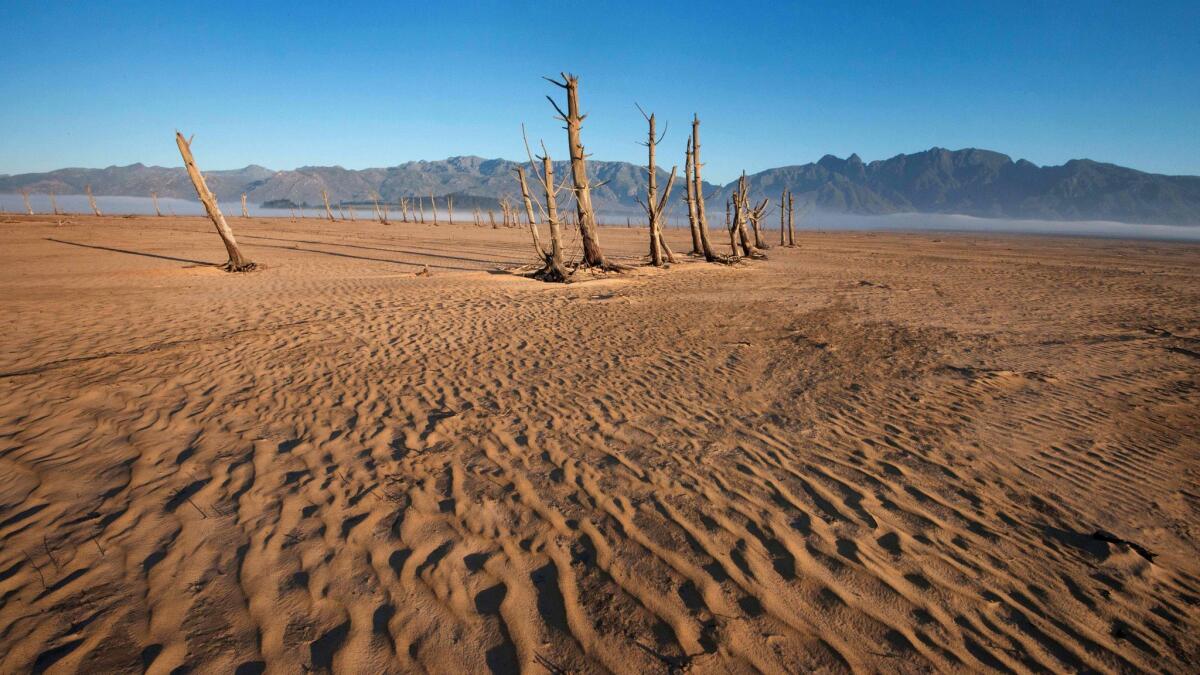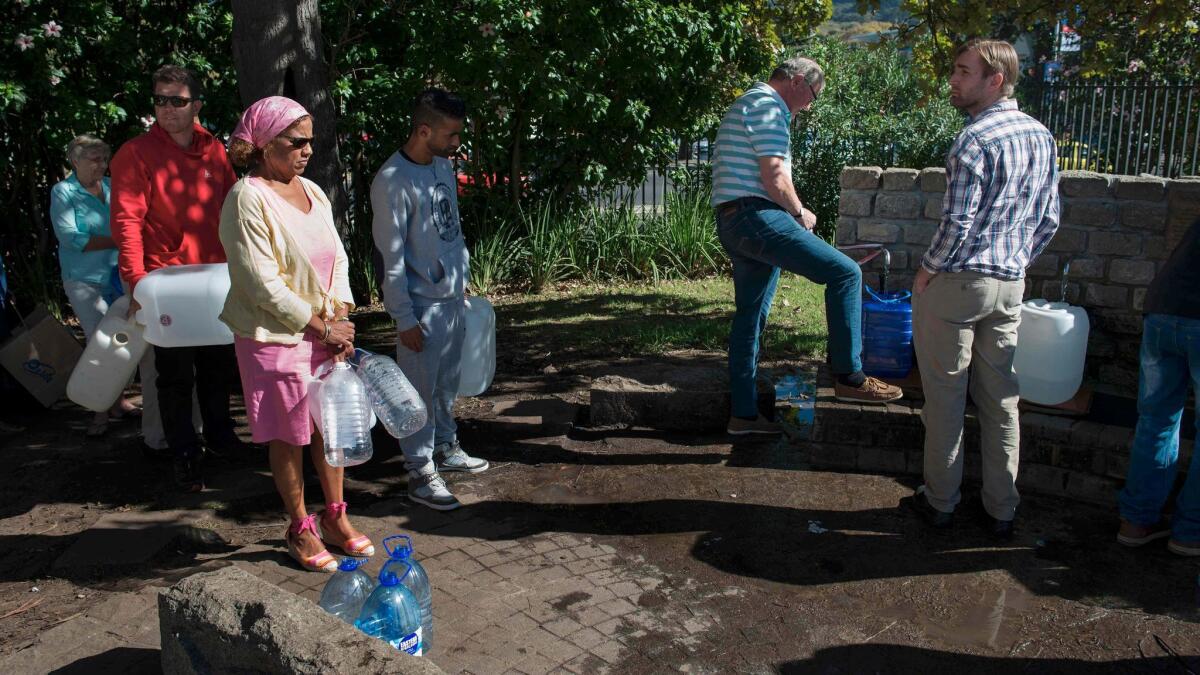One of South Africa’s top tourist destinations is almost out of water

- Share via
Reporting from Johannesburg, South Africa — “Day Zero” in Cape Town — the day that the water taps slow to a muddy dribble, then a drip and run dry — is around three months away.
The city, one of South Africa’s top tourist destinations, nestled on the country’s southern coast beneath Table Mountain, faces a severe water crisis as reservoirs sank to an effective 10.5% of their capacity after five years of drought.
The actual level of Cape Town’s dams averaged around 20%, but the last 10% of the dams is not usable because of poor quality or because the water can’t be accessed, according to city authorities. The level in the biggest reservoir, which provides half the city’s water, reached 14.5%, or an effective 4.5%.
On Tuesday, the city authorities demanded that water consumption be immediately cut by 26 million gallons a day. Officials spelled out plans for its toughest water restrictions yet, including bans on all external use of water for washing cars, watering lawns and filling swimming pools and severe restrictions of less than 26 gallons per person a day for essential washing, drinking and cooking only.
The city was declared a disaster area in March as it confronted its worst drought in more than 100 years. The premier of the Western Cape province, Helen Zille, on Monday declared the entire province a disaster zone.
Cape Town’s drought is very inconvenient but elsewhere in Africa, notably Somalia, prolonged drought is displacing families and killing children, with famine threatening in several African countries, particularly those hit by conflict.
The wealthy, able to buy water, are somewhat cushioned from the crisis, but the provincial government doesn’t have enough water in its reservoirs to truck water to residents in parched townships.
The crisis mirrors a countrywide crisis last year when townships ran dry and residents of major cities staged collections of bottled water, which was donated and trucked across South Africa.
The government has announced plans to drill for water at hospitals and schools and to try to tap into groundwater under Table Mountain.
In Cape Town, the crisis is partly caused by climate change, but the city’s rapid population growth to nearly 4 million people has contributed to the stress on the water system.
Government officials have warned residents not to flush toilets unless absolutely necessary, to use bathwater and dishwater to flush toilets, limit showers to two minutes or to give themselves sponge baths instead.
Although Cape Town is in the low tourist season at present, hotels have taken steps to reduce water usage, asking guests to use hand sanitizers instead of water, limit use of towels, not to run taps when cleaning teeth or soaping hands and to limit the length of showers.
Some hotels provide place updates on the dam levels in guest rooms to encourage water economy. Hotels are installing water recycling systems and water restrictors on taps to cut water flow.
Mounting warnings in recent months have failed to curb water use. The city released a list of shame recently, outing the top 100 water users, most of them concentrated in affluent areas. They also sent out teams to plug water leaks. The worse offender used 33 times more than the average household.

Cape Town Mayor Patricia De Lille has warned the city would cut off water supplies for extended periods or drastically reduce water pressure if the situation worsened.
Cape Town in one of South Africa’s main tourist destinations, but the peak of the tourist season comes later in the year. A dry winter is predicted in coming months. But even if Cape Town gets enough rain to avoid a crunch in the next few months, it will likely face one later in the year, according to analysts.
Critics say the provincial government, which is in the hands of the opposition Democratic Alliance, should have done more to forestall the crisis by acting sooner to upgrade infrastructure and cut water usage.
Twitter: @RobynDixon_LAT
ALSO
In Madagascar, mothers weep and send their children to bed without water to drink
Police make arrest in Manchester blast as suspected suicide bomber is identified
More to Read
Sign up for Essential California
The most important California stories and recommendations in your inbox every morning.
You may occasionally receive promotional content from the Los Angeles Times.













